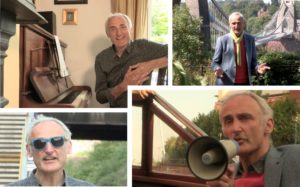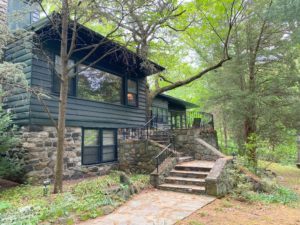Think you know the music of Aaron Copland? Think again!

©JohnArdoin
Aaron Copland is known principally for a handful of works composed in the late 1930’s and 1940’s. The aim of this blog is to introduce his relatively unknown and neglected pieces to a wider audience.
My view point is that the music of Aaron Copland is an absolutely perfect starting point to get children (in particular) interested in the classics – the popular ballets and film music were successful in awakening my own curiosity and this was exactly Copland’s intention. In the 1930’s he came to the conclusion that most modern composers seemed to be working in a vacuum producing music for a learned few. The path his music followed from 1936-1952 aimed to be useful to society through the Cowboy ballets and simpler pieces for high school performers, radio, film and pieces supporting the war effort (such as Fanfare for the Common Man).
This certainly reeled the public in and resulted in Copland being lauded as the Dean of American composers. However, if you listen closely you’ll see that Copland remained true to his full musical lexicon and in many pieces there is dissonance where you would least expect to find it (The Fear in the Night section of the complete ballet version of Appalachian Spring, and the soundtracks to The Heiress and Of Mice and Men are good examples of this).
These pieces provide a great starting point to exploring the more “serious” works. His works penned between 1927-34 such as the Piano Variations, Symphonic Ode, Short Symphony and Statements and the 1960s orchestral works Music for a Great City and Connotations present significant landmarks in 20th Century classical music. Whereas the ballets suggest views of mountains and prairies these pieces are hard edged and evoke a cityscape of towering skyscrapers. Copland didn’t waste musical notes and these pieces are short (all less than 20 minutes) and combined with the fact they are viewed as difficult for performers (due to frequent changes in meter and cross rhythms) and need extra rehearsal time, they are seldom performed (and rarely played on the radio). This is a travesty and means that an important part of Copland’s oeuvre remains largely unknown.
Copland was an extremely good orchestrator and a tremendously generous composer. Many of the highlights in his pieces go to instruments often down the pecking order – I am sure many orchestral trumpeters, cor anglais players, flautists and percussionists are externally grateful for his contribution to their repertoire.
Join me on an exciting journey of discovery with this genius of modern music.









Leave a Comment